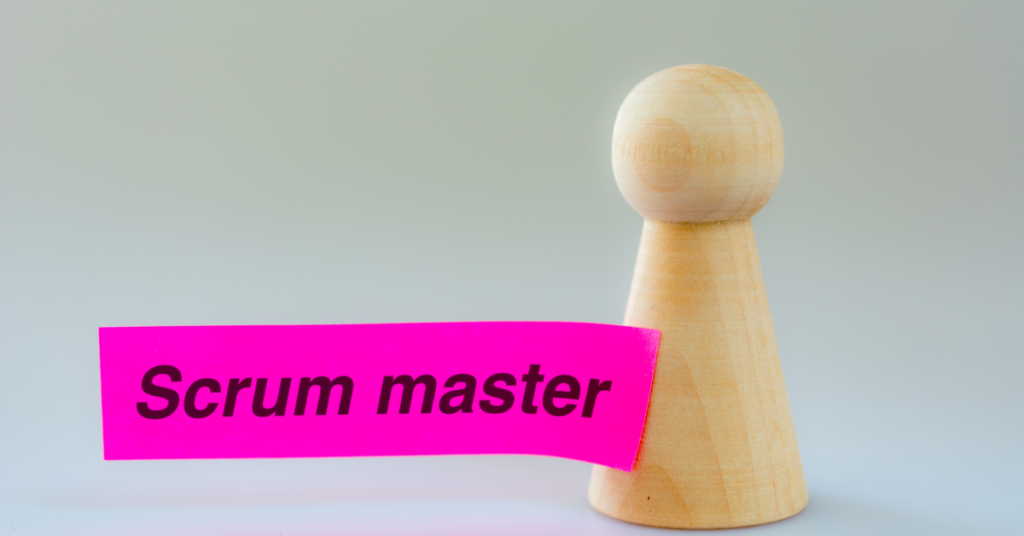Your Ultimate Guide to the Top 20 Scrum Master Interview Questions

- 2. How do You Handle Conflicts Within a Scrum Team?
- 3. Can You Explain the Difference Between Scrum and Agile?
- 4. What are the Key Responsibilities of a Scrum Master?
- 5. How do You Measure the Success of a Scrum Team?
- 6. How do You Handle a Situation Where the Team Consistently Fails to Meet Sprint Goals?
- 7. What Strategies do You Use to Motivate Your Scrum Team?
- 8. How do You Ensure Effective Communication Within the Team?
- 9. How do You Handle Changes in Project Scope During a Sprint?
- 11. How do You Handle a Team Member Who is Not Contributing Effectively?
- 12. What are Some Common Impediments You Have Encountered, and How Did You Address Them?
- 13. How do You Ensure That the Team Adheres to Scrum Principles and Practices?
- 14. How do You Handle Pressure From Stakeholders to Deliver More Than the Team Can Handle?
- 15. Can You Explain the Role of a Product Owner in a Scrum Team?
- 16. How do You Facilitate Effective Sprint Planning Sessions?
- 17. What Techniques do You Use to Estimate User Stories?
- 18. How do You Ensure Continuous Improvement in Your Scrum Team?
- 19. What are Some Challenges You Have Faced as a Scrum Master, and How Did You Overcome Them?
- 20. How do You Stay Updated With the Latest Trends and Practices in Scrum?
If you are preparing for a Scrum Master job interview, it is crucial to be well-versed in the questions that might come your way. This article will guide you through the top 20 Scrum Master interview questions, ensuring you’re ready to impress your potential employers. Whether you are new to the field or looking to advance in your current role, understand these Scrum Master interview questions and how to become Scrum Master. Let’s dive in and explore the essential Scrum interview questions you need to know.
 1. What is the Role of a Scrum Master?
1. What is the Role of a Scrum Master?
Understanding the role of a Scrum Master is pivotal in understanding how to become Scrum Master. Firstly, a Scrum Master facilitates Scrum ceremonies, such as sprint planning, daily stand-ups, sprint reviews, and retrospectives. Additionally, they help the team adhere to Scrum principles and practices. Moreover, a Scrum Master removes any impediments that might hinder the team’s progress. Consequently, they act as a coach and mentor for the team, ensuring continuous improvement and effective collaboration. This is one of the fundamental Scrum Master interview questions you should be prepared for.
2. How do You Handle Conflicts Within a Scrum Team?
Handling conflicts within a Scrum team requires effective communication and mediation skills. Firstly, as a Scrum Master, you need to understand the root cause of the conflict. You should facilitate a constructive dialogue between the conflicting parties. It is also essential to encourage empathy and understanding among team members. By doing so, you can help the team resolve conflicts amicably and maintain a healthy working environment. This is another common topic in Scrum Master interview questions.
3. Can You Explain the Difference Between Scrum and Agile?
While Scrum and Agile are often used interchangeably, they are not the same. Agile is a broader methodology that encompasses various frameworks, including Scrum. On the one hand, Agile focuses on iterative development, customer collaboration, and flexibility. Scrum, on the other hand, is a specific framework within Agile that provides a structured approach to project management. Moreover, Scrum defines roles, ceremonies, and artifacts that guide the development process. Understanding this difference is critical for answering Scrum interview questions effectively.
ALSO READ: A Beginner’s Guide on Product Backlog in Scrum
4. What are the Key Responsibilities of a Scrum Master?
The key responsibilities of a Scrum Master include facilitating Scrum ceremonies, coaching the team on Scrum practices, and removing impediments. Additionally, a Scrum Master acts as a servant leader, supporting the team in achieving their goals. Furthermore, they ensure effective communication between the team, product owner, and stakeholders.
Highlighting these responsibilities is essential when responding to Scrum Master interview questions.
5. How do You Measure the Success of a Scrum Team?
Measuring the success of a Scrum team involves evaluating various metrics. Firstly, you can assess the team’s “velocity”, which indicates the amount of work completed in each sprint. Also, monitoring the team’s ability to deliver shippable increments and meet sprint goals is essential. You should consider the team’s engagement and collaboration levels. A combination of quantitative and qualitative metrics will give you a comprehensive view of the team’s success. This topic is frequently explored in Scrum Master interview questions.
6. How do You Handle a Situation Where the Team Consistently Fails to Meet Sprint Goals?
Handling a situation where the team consistently fails to meet sprint goals requires a thorough analysis. Firstly, as a Scrum Master, you should facilitate a retrospective to identify the root causes. Secondly, you need to ensure that the sprint goals are realistic and achievable. Additionally, it is essential to address any impediments or challenges the team faces. By doing so, you can help the team improve their performance and achieve their goals. This scenario is a common focus in Scrum Master interview questions.
7. What Strategies do You Use to Motivate Your Scrum Team?
Motivating a Scrum team involves creating a positive and supportive environment. Firstly, you should recognize and celebrate the team’s achievements. Providing opportunities for professional growth and development is essential as well. Moreover, fostering a culture of trust and transparency encourages team members to take ownership of their work. A motivated team is more likely to be productive and deliver high-quality results. This question often appears in Scrum Master interview questions to assess your leadership skills.
ALSO READ: Kanban vs Scrum: A Guide on These 2 Different Agile Methodologies
8. How do You Ensure Effective Communication Within the Team?
Ensuring effective communication within the team is a key responsibility of a Scrum Master. To begin with, you should facilitate regular Scrum ceremonies, such as daily stand-ups, to encourage open communication. Using collaboration tools, such as Slack or Microsoft Teams, can help streamline communication. Furthermore, promoting a culture of transparency and openness is essential. Effective communication leads to better collaboration and project success. Communication strategies are a frequent topic in Scrum Master interview questions.
9. How do You Handle Changes in Project Scope During a Sprint?
Handling changes in project scope during a sprint requires flexibility and effective communication. Firstly, as a Scrum Master, you should assess the impact of the change on the sprint goals. Secondly, you need to facilitate a discussion with the product owner and the team to determine the best course of action. It may be necessary to adjust the sprint backlog or postpone the change to the next sprint. By doing so, you can ensure that the team remains focused and productive. This scenario is often explored in Scrum Master interview questions.
 10. Can You Explain the Concept of a Sprint Retrospective?
10. Can You Explain the Concept of a Sprint Retrospective?
A sprint retrospective is a Scrum ceremony that occurs at the end of each sprint. It provides an opportunity for the team to reflect on their performance and identify areas for improvement. Additionally, the team discusses what went well and what could be improved in the next sprint. Furthermore, the Scrum Master facilitates the retrospective, ensuring that all team members have a chance to share their insights. As a result, sprint retrospectives foster continuous improvement and team growth. This concept is a staple in Scrum Master interview questions.
ALSO READ: Top 10 Project Manager KPI Hacks to the Top
11. How do You Handle a Team Member Who is Not Contributing Effectively?
Handling a team member who is not contributing effectively requires a delicate approach. As a Scrum Master, you should have a one-on-one conversation with the team member to understand the underlying issues. You also need to provide constructive feedback and support to help them improve their performance. In fact, fostering a culture of accountability and collaboration can encourage the team members to contribute more effectively. This scenario is frequently addressed in Scrum Master interview questions.
12. What are Some Common Impediments You Have Encountered, and How Did You Address Them?
Common impediments in a Scrum team can include technical issues, lack of resources, and communication barriers. Addressing technical issues often involves collaborating with other teams or seeking external expertise. Resolving resource-related impediments may require negotiation with stakeholders or management. Open discussions and using collaboration tools are integral to this. A proactive approach to addressing impediments ensures that the team can help maintain its momentum and productivity. This topic is common in Scrum Master interview questions.
13. How do You Ensure That the Team Adheres to Scrum Principles and Practices?
Ensuring that the team adheres to Scrum principles and practices requires consistent coaching and reinforcement. A Scrum Master needs to lead by example and demonstrate a commitment to Scrum values. Regular training and workshops can help the team understand and implement Scrum practices. Additionally, facilitating retrospectives and reviewing the team’s processes can identify areas for improvement. A well-coached team is more likely to adhere to Scrum principles and achieve their goals. Adherence to Scrum practices is often explored in Scrum Master interview questions.
14. How do You Handle Pressure From Stakeholders to Deliver More Than the Team Can Handle?
Handling pressure from stakeholders to deliver more than the team can handle requires effective communication and negotiation skills. Facilitate a discussion with the stakeholders to understand their priorities and concerns. Next, clearly communicate the team’s capacity and the impact of overcommitting on the project quality and timelines. Working with the product owner to prioritize the backlog can help manage stakeholder expectations. By doing so, you can ensure that the team remains focused and delivers high-quality work. This scenario is frequently discussed in Scrum Master interview questions.
ALSO READ: 5 Lean Principles to Boost Project Efficiency and Productivity
15. Can You Explain the Role of a Product Owner in a Scrum Team?
The product owner is responsible for defining and prioritizing the product backlog. Furthermore, they act as the liaison between the stakeholders and the development team, ensuring that the team understands the project’s goals and requirements. The product owner also makes critical decisions regarding product features and the release schedule. A strong collaboration between the Scrum Master and the product owner, therefore, is essential for the team’s success. Understanding this role is important for answering Scrum Master interview questions.
16. How do You Facilitate Effective Sprint Planning Sessions?
This topic is often explored in Scrum Master interview questions. Facilitating effective sprint planning sessions involves thorough preparation and clear communication. To start off, a Scrum Master should ensure that the product backlog is well-defined and prioritized. Next, encourage the team to discuss and estimate the tasks for the upcoming sprint. Itbis also important to set clear sprint goals and ensure that the team understands their responsibilities is essential.
17. What Techniques do You Use to Estimate User Stories?
Estimating user stories involves using various techniques to assess the complexity and effort required. One common technique is Planning Poker, where team members independently estimate and then discuss their estimates. The Fibonacci sequence can also be used to assign story points, reflecting the relative complexity of each user story. T-shirt sizing is another technique. Here, user stories are categorized as small, medium, large, or extra-large. Consequently, these techniques help the team reach a consensus on the effort required for each user story. Estimation techniques are a frequent topic in Scrum Master interview questions.
ALSO READ: What are Lean Principles vs. Agile vs. DevOps? Project Management
18. How do You Ensure Continuous Improvement in Your Scrum Team?
Ensuring continuous improvement in your Scrum team involves fostering a culture of learning and adaptation. To begin with, facilitating regular retrospectives allows the team to reflect on their performance and identify areas for improvement. Next comes open communication and feedback. This helps the team address issues promptly. Additionally, providing opportunities for professional development and training can enhance team skills and knowledge. Continuous improvement leads to higher productivity and better project outcomes. This topic is frequently covered in Scrum Master interview questions.
19. What are Some Challenges You Have Faced as a Scrum Master, and How Did You Overcome Them?
Challenges as a Scrum Master can include resistance to change, lack of stakeholder support, and team conflicts. Overcoming resistance to change requires effective communication and demonstrating the benefits of Scrum practices. The next step is gaining stakeholder support. This involves building strong relationships and clearly communicating the value of Scrum. It is also important to know how to resolve team conflicts requires mediation skills and foster a collaborative environment. By addressing these challenges proactively, you can ensure the success of your Scrum team. This scenario is a common focus in Scrum Master interview questions.
20. How do You Stay Updated With the Latest Trends and Practices in Scrum?
Staying updated with the latest trends and practices in Scrum involves continuous learning and networking. Attending Scrum workshops, conferences, and webinars can provide valuable insights and knowledge. Participating in Scrum communities and forums allows you to share experiences and learn from other professionals. Reading books, blogs, and articles on Scrum can keep you informed about the latest developments. Staying updated helps you enhance your skills and advance your Scrum Master career. This is a common closing question in Scrum Master interview questions.
ALSO READ: What are Best Agile Project Management Courses Online?
In conclusion, being well versed with such Scrum Master interview questions and answers will give you a competitive edge in your job search and help you secure a position in a thriving Scrum Master career. For those looking to further enhance their project management skills and knowledge, or preparing for Scrum Master jobs can consider exploring Emeritus’ online project management courses. These courses are designed to provide you with the latest insights and techniques in project management, helping you stay ahead in your career.
Write to us at content@emeritus.org









